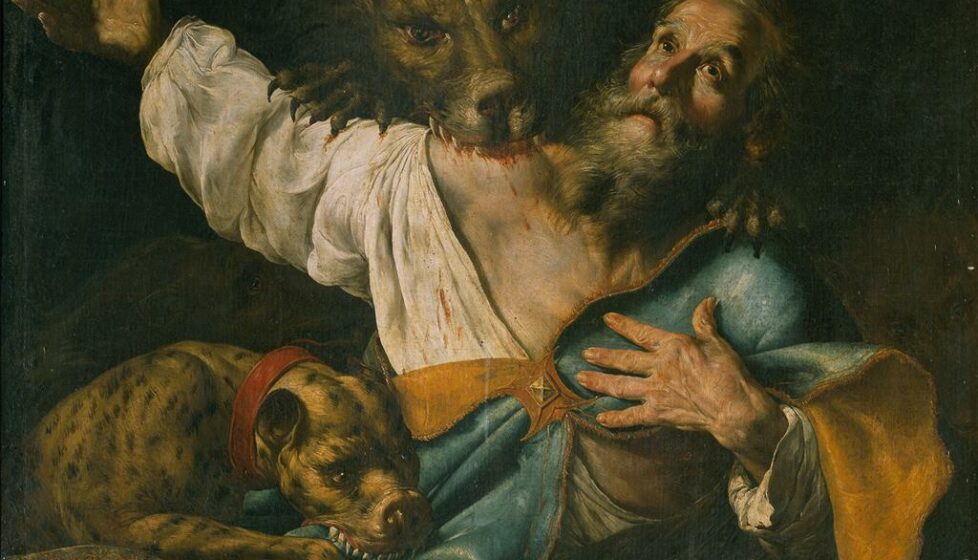Stories of Christian Martyrs: Philip
Rome

Two men named Philip occupied the stage in the early church. One
was Philip the apostle, the first person called by Jesus to follow
Him. The other was Philip the evangelist, one of the seven chosen
by the church to help with the special needs of the growing band of
believers in Jerusalem. Both men had similar evangelistic hearts, and the
accounts of their lives have often been intertwined in subsequent history.
Their stories are further complicated because they each appear to have
fathered several daughters. Philip the apostle is mentioned several times
in the Gospel of John but only once in the book of Acts (1:13). Philip the
deacon appears in Acts and is instrumental in the conversion of the
Ethiopian eunuch as well as in the spiritual outbreak among the Samaritans, recorded by Luke in Acts 8. Philip the deacon later hosted the
apostle Paul on his last journey to Jerusalem (Acts 21:8). They may have
had further contact during the two years that Paul was imprisoned in
Caesarea before his journey under guard to Rome.
Philip the apostle came from Bethsaida, a town in northern Israel
close to Capernaum and the Sea of Galilee. His non-Jewish name may
indicate the degree to which Bethsaida was influenced by the Greek
culture and government language that preceded the Roman occupation,
a time when Alexander the Great had spread Greek influence across the
world. The fact that Koine Greek, not Latin, was a trade and official
language of the times indicates that Rome didn’t rule everything.
John gives us four glimpses of Philip in action. When Jesus called
Philip to follow Him (John 1:43), the young disciple immediately sought
out his friend Nathanael and invited him to meet Jesus. He was clearly
a young man more prone to see himself as a channel than a destination.
Once he received information, he determined to act on it. Philip also
spoke up in the discussion before the feeding of the five thousand, offering his estimate of what it would cost to buy food for such a large crowd (John 6:7). His practical observation regarding the lack of means or money simply highlighted Jesus’s miraculous action. Circumstances that look and are impossible do not hinder God from working. On another occasion, when a group of Greek speakers wanted to approach Jesus, they contacted Philip to act as an intermediary. John mentions Philip’s connection with Bethsaida as the reason for their strategy (John 12:21).

John also remembered Philip’s request to Jesus during the Last Supper: “Philip said to Him, ‘Lord, show us the Father, and it is enough for
us’” (John 14:8). Jesus’s answer to Philip was for all the disciples: “Have
I been with you so long, and you still do not know me, Philip? Whoever
has seen me has seen the Father. How can you say, ‘Show us the Father’?
Do you not believe that I am in the Father and the Father is in me? The
words that I say to you I do not speak on my own authority, but the
Father who dwells in me does his works” (John 14:9-10).
Jesus told the disciples everything they would need to remember
later, after the reality of the resurrection had wiped out their tendency
toward unbelief. Philip’s Greek name, his multilingual abilities, and his
outgoing personality all combined with his vibrant faith in the risen
Christ to make him an equipped messenger for the Gospel.
One of the unique features surrounding the apostle Philip is his connection with the area we now know as France. He is the only apostolic
figure claimed to have carried the Gospel to the Gauls, the ancient
inhabitants of that region. Philip the apostle has also been traditionally
linked with Hierapolis in western Turkey. The church he led in that city
was just outside the circle of seven churches mentioned by John in the
first chapters of Revelation. His proximity to the apostle John may
explain why John’s gospel features Philip’s words and actions.
Culturally, Hierapolis had a Phrygian background, and the regional
religion focused on the god Sabazios, represented by a snake. Geographically, Hierapolis was the site of magnificent mineral springs—rumored to have healing powers—that drew people from many parts of the world. This gathering of various nationalities would have attracted an apostolic missionary. Historically, Hierapolis became a largely Christian city. The church may have been planted as a result of Paul’s journeys, though the city is not mentioned in his itineraries. The ruins of Hierapolis today
include the remains of several ancient churches. Philip may have paid
with his life in order to sustain the church. The pagan priests of Hierapolis may have been delighted to profit from visitors from many places of
the world, but they didn’t appreciate having their religion directly challenged as Philip’s message would have done.
Crucifixion was a favored punishment by the Romans, but the practice may have become even more widely known because of its prominence
in the preaching of Jesus’s followers. This could explain why so many of
the early missionaries were themselves crucified. In Philip’s case, the
religious establishment apparently arranged for him to be crucified and
stoned. Obviously, their tactic once again proved ineffective in stopping
the Gospel.
“If you abide in my word,
you are truly my disciples,
and you will know the truth,
and the truth will set you free.”
John 8:31-32
This story is an excerpt from Foxe: Voices of the Martyrs. You can get your own copy free with any donation to The Voice of the Martyrs.

